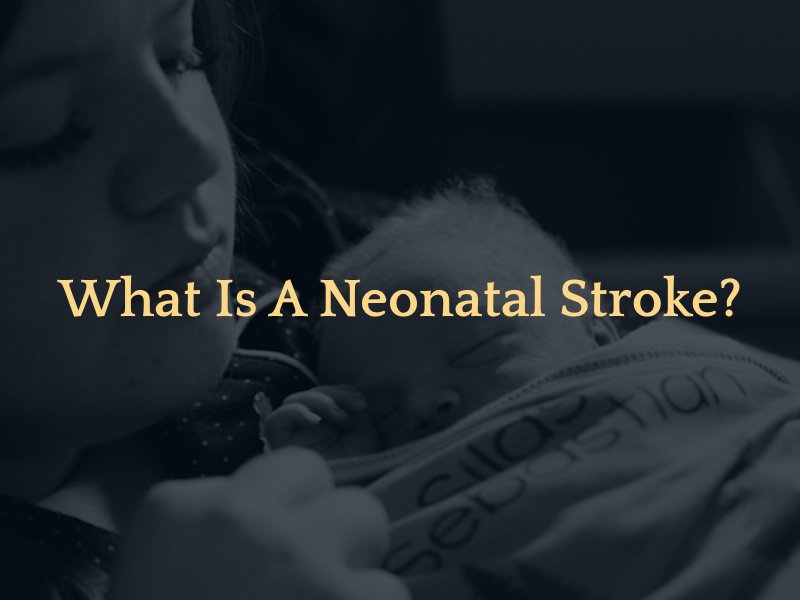
Most people don’t think of infants in connection with strokes but about one in 2,500 full-term babies and many more pre-term infants suffer strokes. The term neonatal strokes refers to strokes in infants between 20 weeks gestation and up to 28 days after birth. About half of infants who experience strokes suffer long-term disabilities, seizures, cognitive impairment, and behavioral disorders. Neonatal strokes are also a common cause of cerebral palsy. Neonatal strokes may be one of two types, arterial ischemic strokes caused by a blood clot that interferes with blood flow to the brain, or a hemorrhagic stroke caused by bleeding in the brain.
What Causes Neonatal Strokes?
Infant strokes can occur before or after birth but are usually diagnosed after birth. In some cases, doctors may never learn the cause of the stroke; however, common causes include the following:
- Disruption of oxygen to the brain during birth
- Heart defects
- Sickle cell anemia and other blood disorders
- Injury to an artery in the brain
- Infections like meningitis
- Infant dehydration
- Moyamoya, a disease that constricts the arteries in the brain
Certain medical conditions and other circumstances experienced by the mother can lead to strokes, including preeclampsia, diabetes, infections, premature membrane ruptures, placental abruption, or drug abuse. It may also result from a child’s medical condition such as an aneurism or hemophilia, or due to trauma to an infant’s head during delivery or after birth.
Signs of a Neonatal Stroke
Early signs of neonatal strokes sometimes emerge during the hours after birth and may include seizures, feeding difficulties, sleepiness, abnormal movements, or a lack of movement on one side of the infant’s body. Later signs of a neonatal stroke include delays in meeting milestones like rolling over, crawling, and walking. A child who suffered a neonatal stroke may have learning difficulties, speech problems, impaired vision, behavioral problems, epilepsy, or cerebral palsy.
Diagnosing and Treating a Neonatal Stroke
When an infant shows signs and symptoms of a neonatal stroke, or when other causes of symptoms are ruled out, a doctor may order imaging tests such as an MRI or CT scan to examine images of the child’s brain and blood vessels to determine whether or not they experienced a stroke and the location and extent of damaged brain tissue. Despite ongoing research, there is currently no medical treatment to restore damaged brain tissue after a neonatal stroke.
Once an infant or child is diagnosed with a stroke, they may receive emergency treatment if the stroke occurred recently. Emergency treatment can include removing a blood clot through a procedure using a tiny catheter or through thrombolytic medication to limit the damage to the child’s brain. Infants and children diagnosed with neonatal strokes usually begin support measures and helpful therapies such as physical therapy, speech therapy, and occupational therapy to improve their outcomes and quality of life. They may require medications to prevent seizures and to treat clotting disorders. Because a child’s brain is still developing, it’s often possible to retrain the brain to rely on the undamaged portions and develop new pathways to restore function.
Many children diagnosed with a neonatal stroke go on to become functioning, independent, and productive adults. In cases where misdiagnosis or delayed treatment contributed to the stroke, a Phoenix medical malpractice attorney can help families explore their legal options and seek compensation for the harm caused.
